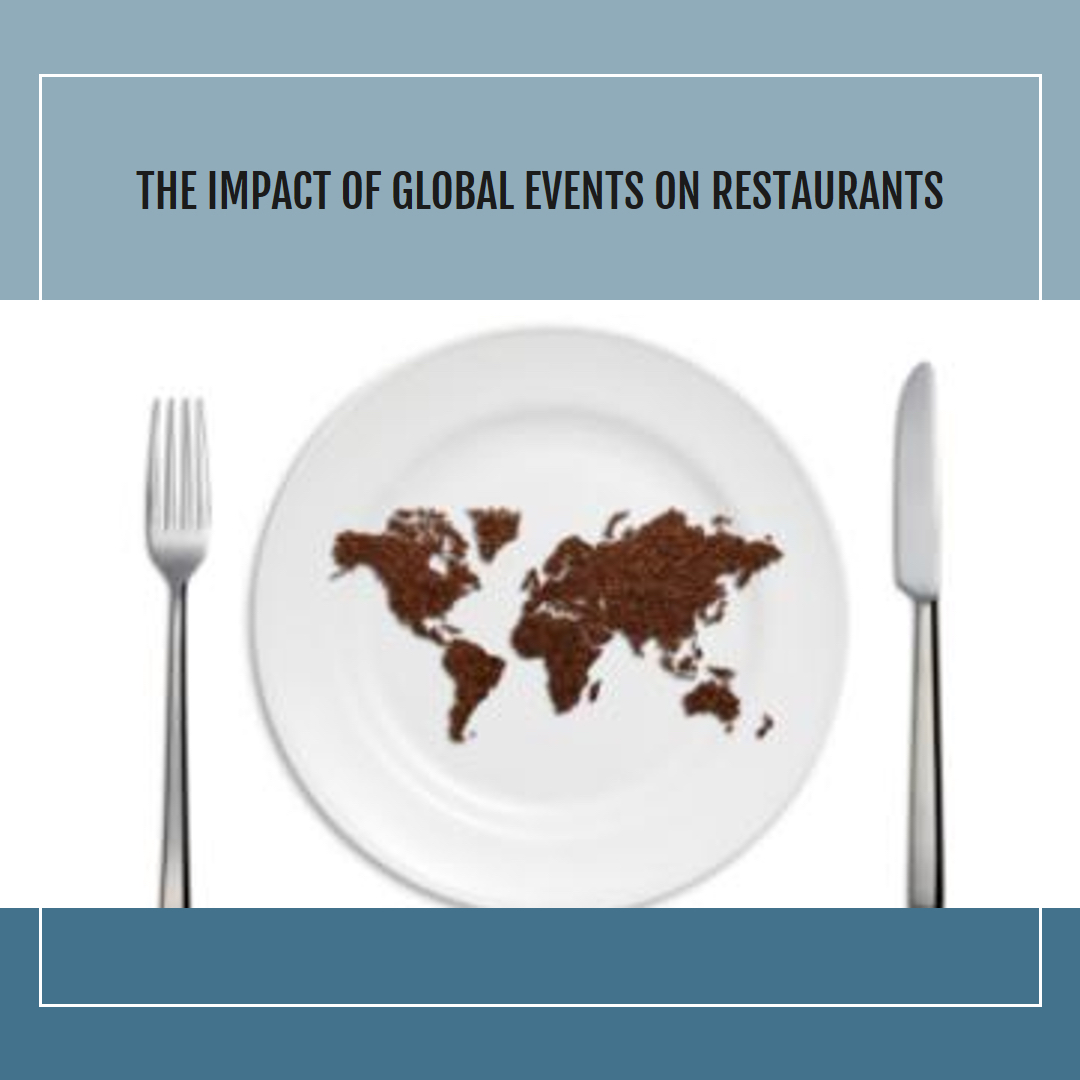In an interconnected world, the restaurant industry is not immune to the ripples caused by unforeseen global events and crises. From the unprecedented challenges posed by the COVID-19 pandemic to the far-reaching consequences of natural disasters and geopolitical unrest, the resilience of the restaurant sector is continually tested. In this blog, we delve into the profound and lasting impacts that such events can have on the culinary landscape, as well as the adaptive strategies that restaurants employ to weather the storm.
The COVID-19 pandemic stands out as a paradigm-shifting event that sent shockwaves through the global economy, and the restaurant industry bore the brunt of its impact. Lockdowns, social distancing measures, and travel restrictions led to an abrupt decline in foot traffic, resulting in widespread closures and financial hardships. Restaurants faced unprecedented challenges, forcing them to pivot swiftly to new business models, such as takeout and delivery services, to stay afloat. The digital transformation that ensued highlighted the importance of technology in ensuring the survival of restaurants.
Natural disasters, another category of global events, also play a pivotal role in shaping the fate of the restaurant industry. Hurricanes, earthquakes, floods, and wildfires have the potential to disrupt the supply chain, damage infrastructure, and displace communities, all of which can have a cascading effect on restaurants. These crises not only pose immediate threats but can also leave lasting scars on local economies. Restaurant owners in disaster-prone regions must develop robust contingency plans and collaborate with local communities to build resilience against the unpredictable forces of nature.
Geopolitical crises, marked by political instability, trade tensions, or armed conflicts, represent yet another challenge for the restaurant industry. These crises can lead to shifts in consumer behavior, affecting travel patterns, tourism, and international trade. Restaurants dependent on global supply chains may face disruptions, while those relying on tourism may experience a sharp decline in business. In such circumstances, adaptability becomes a key survival skill for restaurant owners, who must quickly reassess their strategies and target markets.
Despite the myriad challenges posed by global events and crises, the restaurant industry has proven remarkably resilient. One notable trend that emerged from the COVID-19 pandemic was the accelerated adoption of technology. Online ordering platforms, contactless payment systems, and digital marketing became essential tools for restaurants looking to connect with customers in a socially distanced world. The rise of ghost kitchens, dedicated spaces for fulfilling online orders, showcased the industry’s innovative response to changing consumer preferences.
Moreover, the focus on sustainability gained momentum as restaurants sought to build a more resilient and environmentally conscious future. Locally sourced ingredients, reduced food waste, and eco-friendly practices became central tenets of many restaurant operations. The pandemic, while a crisis, spurred a renewed sense of community and support for local businesses, prompting consumers to prioritize sustainable and ethical dining choices.
In conclusion, the restaurant industry’s ability to weather unforeseen global events and crises hinges on its adaptability and resilience. The lessons learned from the COVID-19 pandemic, natural disasters, and geopolitical upheavals underscore the importance of technological integration, sustainable practices, and community engagement. As the culinary landscape continues to evolve, restaurant owners must remain vigilant, proactive, and innovative in the face of uncertainty. By embracing change and leveraging newfound strengths, the restaurant industry can not only survive but also thrive in the aftermath of global events and crises.
Paul Sofsky
CEO
Orca Inventory


